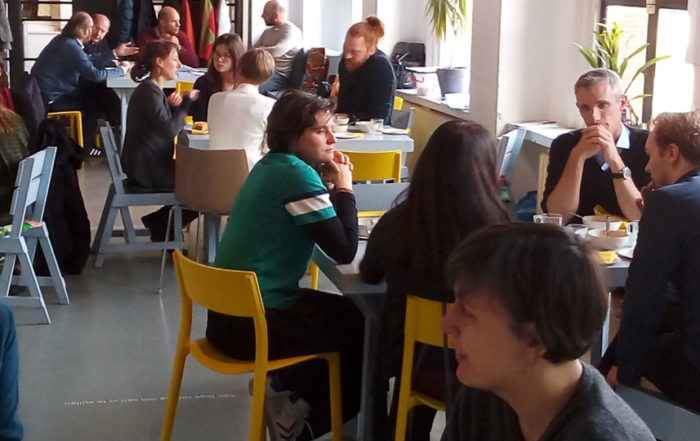Bryony Parrish
University of Sussex
Bryony is a PhD Researcher at SPRU (Science Policy Research Unit) at the University of Sussex. Her PhD research investigates UK residential user engagement with hybrid heat pumps and demand response, and considers how users learn about new energy technologies and the implications for decarbonisation. Social innovation in energy is relevant to her PhD research because part of user learning about new technologies might be the emergence of new practices, but it’s also a topic she is interested in learning about more broadly because she believes that technology alone won’t produce the transformation that’s required to address climate change. Within Energy-SHIFTS she has supported a workshop on social innovations for energy transitions (hosted by DRIFT with Energy Cities).
But what even is social innovation?
Bryony Parrish is Doctoral Researcher at the University of Sussex
This is the question a group of friends asked when I said I was going to the Energy-SHIFTS workshop on social innovation organised by DRIFT on 4 April 2019. Social innovations are changes in how people think about and do things, I told them, quoting from the material circulated before the workshop.
But by going to an event hosting a diverse group of academics and practitioners working in the topic I was sure a much more complex answer would emerge.
Some of the most interesting ideas from the day related less to what social innovation is, and more about opportunities for creating change.
Games, role plays, art or experiences designed to provoke and challenge thinking about how we depend on energy systems and infrastructure to fulfil our needs (or desires); energy-cooperatives and user workshops to create new visions of the future and share practical knowledge; ways to engage with incumbent actors and the role of local government in creating change are only a few.
Running throughout where debates about impact, urgency, and governance, where the value of bringing together diverse perspectives was clear. If transformative change means challenging, altering and replacing current structures – how can we identify and keep the parts of the current system that we want, and involve those incumbent actors in the transition?
Some questions about social innovation
When might social innovation actually reproduce and reinforce the logic of the current system? Does the urgency of the climate crisis make saving energy the primary goal, and maybe even make democratic engagement less important – or should it be seen as one aspect of broader changes we want to see in society? Is it even possible to create deep, impactful change without democratic engagement?
How could we navigate the politics of using crisis, or the idea of crisis, to provoke change – or should visions of the future focus on desirability? And what is our role as researchers and practitioners in defining and judging what democracy and inclusivity mean in the context of energy system transitions, and how they should be enacted?
It was a pleasure to participate in these conversations, and like any good workshop, it raised more questions than it answered. I will look forward to reading the summary of the event and carrying some of these ideas forwards.
This workshop is part of the Energy-SHIFTS activities programme.

